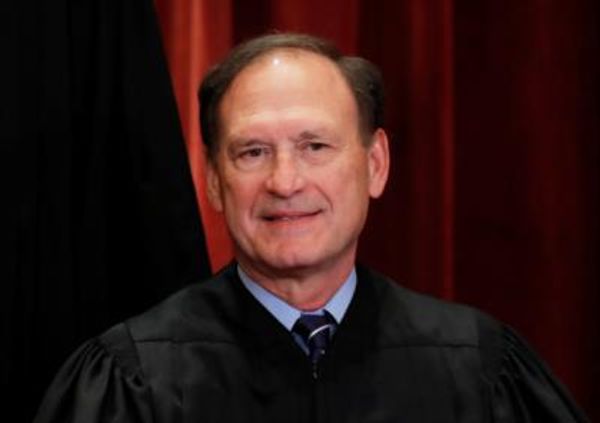DETROIT — Roughly two-thirds of Ford Motor Co.'s dealer network in the U.S. has opted to participate in a new — and, to some, controversial — certification program governing how dealers handle electric vehicle sales.
Ford CEO Jim Farley, speaking at the Automotive News World Congress downtown Monday, said that 1,920 Ford dealers have enrolled in the Model e program for 2024-2026. Of those that enrolled, the vast majority — 1,659 dealers — opted into the highest level, "certified elite," which gives them full sales and service capabilities and requires a higher investment level. Another 261 dealers opted to become "certified" with full service capability, a cap on how many EVs they can sell, and a lower investment requirement.
Ford has about 3,000 dealers in its franchised dealer network in the U.S. The company will give those that didn't enroll this time around another opportunity to do so in 2025, for another wave that starts in 2027.
"We're betting on the franchise system. Now the largest luxury brand in the United States didn't," Farley said, referring to Tesla, which sells vehicles directly to consumers. "And we're betting on the dealer council process."
Farley said executives didn't have a specific enrollment number they were aiming for, but wanted to ensure Model e dealers were adequately spread out to serve customers who are new to the brand.
"So far, we're No. 2 in the U.S. in EV and 70-plus percent of customers are new to us," he said. "We focused not so much on the numbers. It was more like, do we have coverage in Orange County? Do we have coverage in the right parts so people don't have to go too far?"
Ford executives unveiled the standards in September at the company's annual dealer meeting in Las Vegas.
Some dealers and trade groups that represent them have pushed back on the standards. They've expressed concerns about the amount of spending required for EV charging infrastructure, questioned how they'll recoup their investments and argued that some of the program's provisions run afoul of state franchise laws. Generally, those laws require legacy automakers to sell vehicles via dealers and give dealers authority to set pricing.
State dealer associations in a number of states have pushed back on Ford's EV standards. And Ford now is facing legal challenges over the program, Automotive News first reported. Those challenges include a lawsuit filed on behalf of four dealers in New York, an attorney for the plaintiffs in that case confirmed to The Detroit News.
The program also has attracted the attention of a federal lawmaker. U.S. Sen. Richard Blumenthal, a Connecticut Democrat, wrote to Farley last week, urging him to extend the program's enrollment deadline and raising concerns about what he described as its "costly" requirements, according to a news release.
In his letter to Farley, Blumenthal argued that implementing the program as planned would be "antithetical to consumers' interests."
"It is unreasonable to expect that all dealers, in just a few months, are able to commit to hundreds of thousands of dollars in investments that could take years to see the returns of," he wrote. "Fewer Ford Model e dealers lessens competition and consumer choice. Consumers should not be punished for Ford imposing on its dealers tight deadlines requiring high-cost investments."
Ford closed the enrollment window on Friday after previously postponing the deadline from Oct. 31.
Farley on Monday acknowledged the concerns and said Ford would make changes if needed, but said he feels the automaker didn't make any major mistakes in how it developed and rolled out the program.
"We're big boys and girls. If we get something wrong, we'll make an adjustment," he said. "We don't think we have anything wrong yet. But it's going to be a long journey."
The program aligns with an internal restructuring Ford announced earlier this year that reorganized the company around three business units: Ford Blue, the legacy combustion engine business; Ford Model e, the EV and software business; and Ford Pro, the commercial vehicle business. The standards apply to dealers that want to sell vehicles under Ford Model e.
Dealers were not required to opt into the standards. Some of the pushback around the way the program is structured is about the fact that those dealers would not be allowed to sell Ford's EVs through 2026.
Certified dealers are required to invest about $500,000, primarily to install one public-facing fast charger at their store. They would have a limited EV allocation and would not have EVs in stock, but rather would be restricted to build-to-order sales for "loyal" customers. Certified elite dealers, meanwhile, are required to invest up to $1.2 million and install two on-site fast chargers. They'd have demo units on site, "access to rapid replenishment from Ford," according to a Ford presentation on the program, and would be represented on the automaker's website — with non-negotiable pricing.
Ford executives have said publicly that they view the company's dealer network as a competitive advantage, given its scale and the opportunities around service business that it brings. But they've also said that changes to Ford's sales model are needed. With the Model e standards, they aim to deliver efficiencies driven by changes such as e-commerce and digital opportunities, reducing ground stock and "evolving" dealer margins.
The program also has requirements around training dealership employees, and providing new physical and digital services for customers. And Ford is requiring certified elite dealers to maintain pricing consistency and to sell EVs for the initial asking price.
"We don't know what we don't know. How I saw this decision is, it's kind of the future of the franchise system hangs in the balance here," Farley said Monday. "The No. 1 EV player in the U.S. bet against dealers. And we wanted to make the opposite choice. But we know the customer experience has to evolve, because most of these people are new to us."
Ford has identified cost inefficiencies in its distribution model to the tune of "a couple thousand dollars" per unit compared to Tesla's model, Farley said.
Tim Hovik, owner of San Tan Ford in Arizona and chair of Ford's National Dealer Council, told The News that he views the initial wave of dealer enrollments as a first step and that he expects more dealers to come on board in the second enrollment period three years from now. It would make sense, he said, that high-volume dealerships — particularly those in states with zero-emissions vehicle programs — opt in now, while smaller dealers in rural areas for now focus on combustion engine products like the F-150 and Bronco.
Hovik, who enrolled his dealership at the certified elite level, also left open the possibility that tweaks could be made to the program before it goes into effect in 2024.
"I think the key takeaway is, the blueprint that was announced in Las Vegas at the national dealer show in September, it needs to be viewed as a starting point. And I think where some of the frustration or some of the consternation that's come up from either dealers or state dealer associations, is they're viewing it as, that's the final product," he said. "And I certainly don't view it that way, nor does Ford's national dealer council. We view it as the living blueprint, and we see there already have been some changes made and we're working on other changes."
He pointed, for example, to the requirement around maintaining 24/7 access to public charging for customers — a provision he views as a good concept but with operational challenges: "Clearly we're going to have to make some adjustments to that."
"My message has been clear to the state associations: I appreciate what the associations do. They represent the franchised dealers in their states and they do really good work. But I disagree a little bit with them in this instance," said Hovik. "I think we will do much better working within the framework and together with the company. ... The blueprint that they announced in Las Vegas may not be perfect, and there's a lot of work that we're doing between now and when we implement it, but none of that would matter if Ford hadn't come out and endorsed the franchise system."
Farley suggested that some of the opposition may be driven by non-Ford dealers: "I think most of the state associations that have challenged what we're doing ... is actually a lot of non-Ford dealers who aren't sure what their manufacturer is going to do."
Don Hall, president of the Virginia Automobile Dealers Association, is hoping to see modifications to the program in the coming months, he told The News. His organization is among those that have pushed back on elements of the program and urged Ford to change them, arguing that the standards run afoul of state franchise laws guaranteeing dealers an allocation of products with a "fair share of mix and makes."
"I think Ford makes a horrible mistake to assume that (dealers enrolling) means that they're all in and totally enthusiastic," said Hall. "It's more of, OK, this is where we're headed. We are partners. We are players. And let's hope that over the next many months to come, that we'll have some modifications and make this more realistic."
Not all dealers feel that way, however.
Rhett Ricart, CEO of Ricart Automotive near Columbus, Ohio, enrolled as a certified elite dealer and thinks Ford's standards are in line with where the industry is headed, driven by changes consumers are demanding.
"I think they're going to have a lot of (dealers) complain about it, but in the grand scheme of things, they're all going to jump on board. Because that's where we're headed. All these manufacturers aren't putting billions of dollars in electric vehicles because they might just want to make a couple of them. They want to make these things in volume," he said. "I think Ford spent a lot of time thinking this through. They talked to a lot of dealers. They're coming up with the best proposal they can to be able to shift dealers into the 21st century, which is now this new electrified movement."






